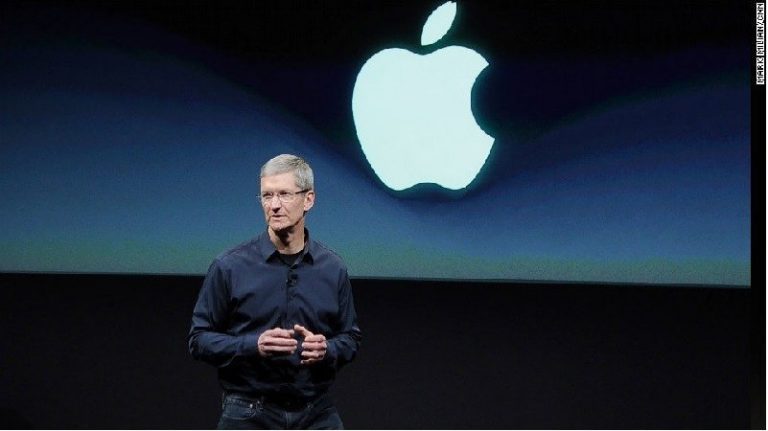
Apple is spotlighting the economic engine of its App Store ecosystem just weeks ahead of its Worldwide Developers Conference. The company states that the U.S. App Store generated $406 billion in developer billings and sales in 2024, representing a significant increase from the $142 billion recorded in 2019.
The numbers were published Thursday through an Apple-funded study conducted by Boston University’s Professor Andrey Fradkin and Dr. Jessica Burley of the Analysis Group, a firm that has worked with Apple for years to frame the company’s market position amid ongoing antitrust scrutiny.
According to the study, a majority of the earnings—90 percent—were made without Apple taking any commission. This is a recurring talking point Apple has leaned on heavily in recent years, especially as it faces legal and regulatory efforts to loosen its control over how iOS apps are distributed and monetized.
Register for Tekedia Mini-MBA edition 19 (Feb 9 – May 2, 2026).
Register for Tekedia AI in Business Masterclass.
Join Tekedia Capital Syndicate and co-invest in great global startups.
Register for Tekedia AI Lab.
In a statement accompanying the report, Apple emphasized that its App Store “connects developers of all sizes with users around the world,” and that “in 2024, U.S. developers earned more than twice what they did five years ago.” The company also highlighted the impact of its Small Business Program, which reduces the App Store commission from 30% to 15% for developers making under $1 million per year. Apple claims that earnings for small business developers rose by 76 percent between 2021 and 2024, attributing this in part to that commission reduction.
Though Apple portrayed the figures as evidence of its positive role in developer success, the numbers come against the backdrop of a U.S. federal court ruling last month that found the company in violation of an earlier injunction related to the Epic Games lawsuit. The court ruled that Apple had failed to comply with a 2021 judgment that required the company to allow developers to link to external payment systems. As a result, Apple is now legally required to let developers include external payment options within their apps, without collecting its standard commission on those transactions. The company is appealing the decision.
In its 2024 report, Apple gave a more granular breakdown of the App Store’s U.S. economic activity. It said that $277 billion came from physical goods and services sold through apps, such as retail and food delivery, areas where Apple does not collect commissions. It added that $75 billion came from in-app advertising and $53 billion from digital goods and services, including subscriptions and app content—categories where Apple typically takes a percentage of each sale.
The report also aimed to show broader economic trends linked to app-driven commerce. Apple noted that spending on physical goods and services via the App Store more than tripled since 2019 while spending on digital goods and in-app advertising more than doubled. It also said that sectors like retail and grocery delivery experienced a fourfold increase during that time.
Apple’s defense of its App Store model continues to rely on two central claims: first, that developers succeed because of the infrastructure, security, and global access the App Store provides; and second, that the commission it collects only affects a narrow slice of its developer base. In its words, the App Store “allows developers to reach customers in 175 countries and regions,” while offering “over 250,000 APIs” through frameworks like HealthKit, Metal, Core ML, MapKit, and SwiftUI. The company also maintains that its review system and fraud protection measures have “prevented billions of dollars in fraudulent transactions.”
However, Apple’s critics say that the company’s tight control over app distribution and payment methods effectively creates a monopoly. Many developers continue to push back against what they see as exploitative practices. Some argue that Apple’s claims of generosity are misleading, since developers’ access to the App Store itself—on a closed operating system like iOS—comes with significant restrictions and unavoidable dependencies.
In the years-long legal fight with Epic Games, the court did not go as far as declaring Apple a monopoly, but the judge concluded that the company’s anti-steering provisions, which previously prevented developers from informing users about alternative payment options, were anti-competitive and unlawful. This judgment led to the ruling that Apple must allow external payment links inside iOS apps.
Apple is now walking a tightrope: trying to reassure regulators and courts that it is not stifling innovation, while still defending the walled-garden model that has made the App Store a cornerstone of its services business. The $406 billion figure, though headline-grabbing, is also part of that effort—to underscore Apple’s argument that the App Store is not a bottleneck, but a boost.
However, with more regulations pending in the U.S. and Europe, and developer sentiment increasingly restive, Apple’s fight over the App Store is far from over. The court-mandated changes to payment policies, and the company’s appeal of those orders, signal that the coming years could bring more cracks to a model Apple has long regarded as unshakable.



